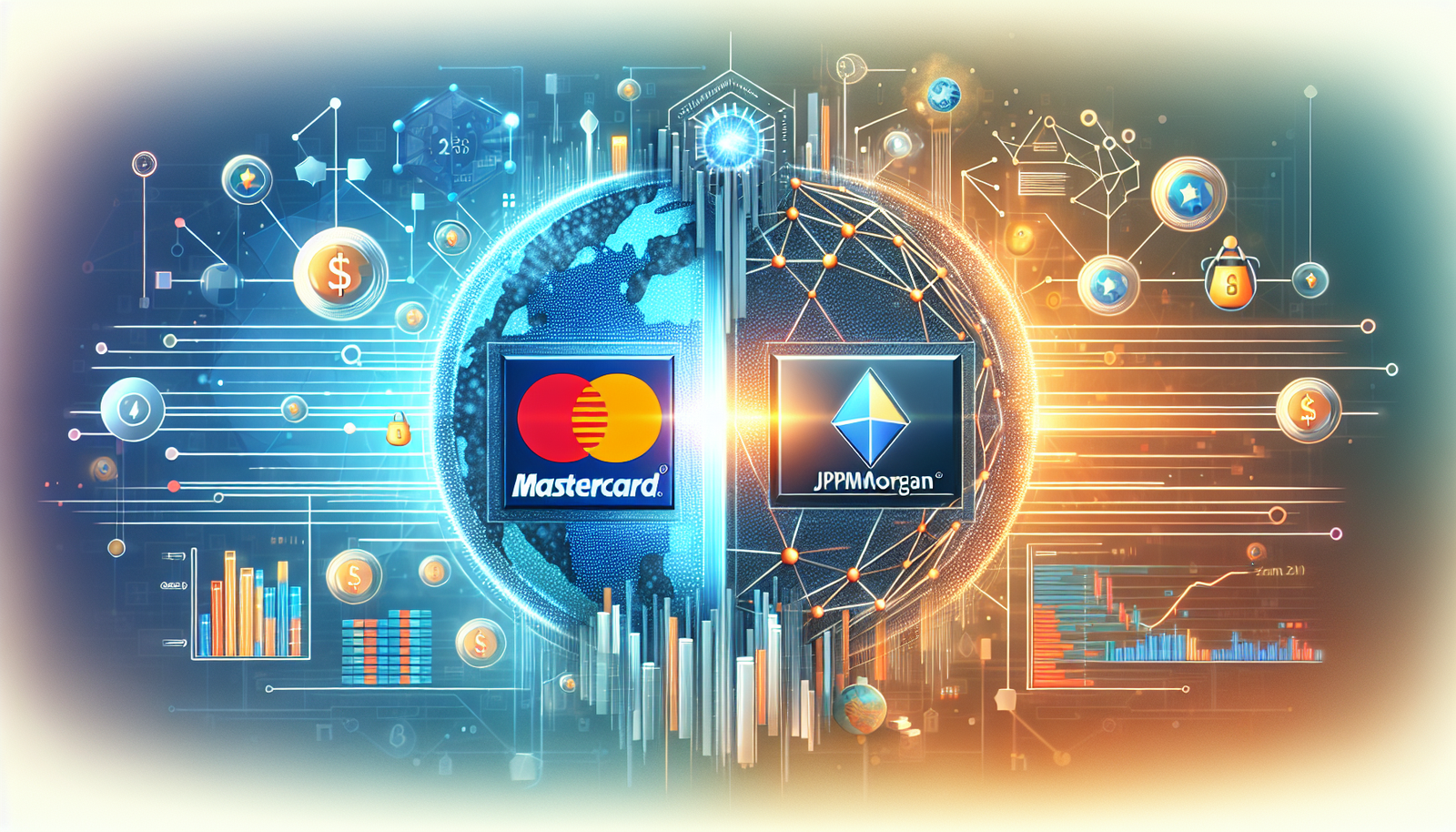Mastercard and J.P. Morgan Collaborate on Blockchain Payment Solutions
In an era where digital transactions have become the backbone of the global economy, Mastercard and J.P. Morgan have stepped into the spotlight by joining forces to leverage blockchain technology for payments. This collaboration showcases the growing trend among financial institutions to embrace cutting-edge innovations that promise to reshape how consumers and businesses transact.
The Power of Collaboration
Mastercard, a leading global payment technology company, has long been at the forefront of transforming the payments landscape. Meanwhile, J.P. Morgan, one of the largest financial institutions in the world, has built a reputation for pioneering advancements in banking and finance. By collaborating, these two giants aim to deliver a seamless, secure, and efficient blockchain payment solution.
But what does this partnership mean for everyday consumers and businesses? To put it simply, it could mean a faster, safer, and more cost-effective way to conduct transactions online. Blockchain, with its decentralized and transparent nature, has the potential to eliminate many barriers that have traditionally hindered cross-border payments.
Understanding Blockchain Technology
Before diving deeper into this collaboration, let’s take a moment to understand blockchain technology. At its core, blockchain is a digital ledger that records transactions across a network of computers. Here are some key features that make blockchain attractive for payment solutions:
- Security: Each transaction is encrypted and linked to the previous transaction, making it extremely difficult to tamper with.
- Transparency: All participants in the network can view the transaction history, ensuring accountability.
- Speed: Blockchain can significantly speed up transaction process times, especially for cross-border payments.
- Cost-Effectiveness: By eliminating intermediaries, transactions can be executed at a lower cost.
The Impact on Businesses
For businesses, especially those involved in international trade, the Mastercard and J.P. Morgan partnership could revolutionize the way they handle payments. Imagine a world where a company in the United States can instantly transfer funds to a supplier in Japan without the typical delays associated with traditional banking systems.
- Reduced Payment Times: Businesses would no longer have to wait days for funds to clear, allowing for quicker transactions and improved cash flow.
- Enhanced Security: With the added security that blockchain provides, businesses can have peace of mind knowing their transactions are protected from fraud.
- Greater Market Reach: Lower transaction costs and faster payment processing could allow small businesses to explore international markets more readily.
The Benefits for Consumers
Consumers are also poised to benefit from this groundbreaking partnership. With the rise of e-commerce, the need for secure and efficient payment methods has never been greater. When Mastercard and J.P. Morgan launch their blockchain-enabled payments, consumers can expect:
- Faster Transactions: Say goodbye to waiting for payment processing – it’ll be as quick as the click of a button.
- Lower Fees: With fewer intermediaries, transaction fees could be significantly reduced, saving consumers money.
- Increased Trust: The transparency of blockchain will help build trust between businesses and customers, fostering a stronger relationship.
Challenges and Considerations
Despite all the excitement surrounding this collaboration, there are several challenges and considerations that both Mastercard and J.P. Morgan will need to navigate:
- Regulatory Compliance: Navigating the regulatory landscape of cryptocurrency and digital payments can be complex, and ensuring compliance is crucial.
- Consumer Adoption: Educating consumers about blockchain technology and its benefits will be integral to encouraging widespread adoption.
- Technological Challenges: Integrating blockchain with existing payment infrastructures will require significant technical investment and planning.
The Future of Payments
The Mastercard and J.P. Morgan partnership is just one example of how the financial landscape is evolving. As more institutions look to integrate blockchain technology into their operations, we may very well be on the brink of a payments revolution. Here are a few trends to watch for:
- Increased Adoption of Cryptocurrencies: As blockchain payments become more mainstream, we could see a greater acceptance of cryptocurrencies in everyday transactions.
- Smart Contracts: Future payment systems may utilize smart contracts that execute automatically when certain conditions are met, further streamlining transactions.
- Global Financial Integration: More efficient cross-border payments could foster global trade and economic integration, leveling the playing field for businesses of all sizes.
Conclusion: A New Chapter in Financial Transactions
As Mastercard and J.P. Morgan move forward with their blockchain payment solutions, we are witnessing the dawn of a new era in financial transactions. The implications of this collaboration extend far beyond just the companies involved; they are poised to impact consumers and businesses alike. With enhanced security, speed, and cost-effectiveness, the future of payments looks bright.
In conclusion, it’s inspiring to see traditional financial powerhouses acknowledging the transformative potential of blockchain technology. As we continue to evolve in the digital age, collaborations like this create a foundation for more innovative solutions that drive the global economy forward. To keep up with the latest developments in the world of finance, feel free to check out Neyrotex.com for insightful information and updates.




